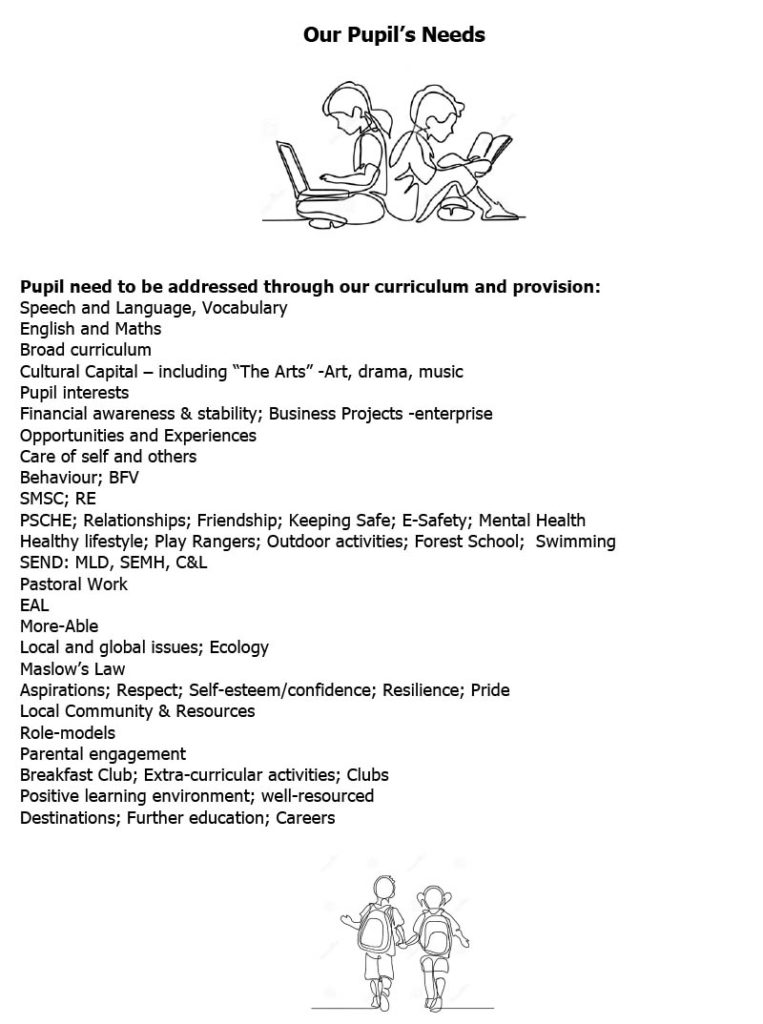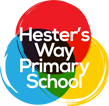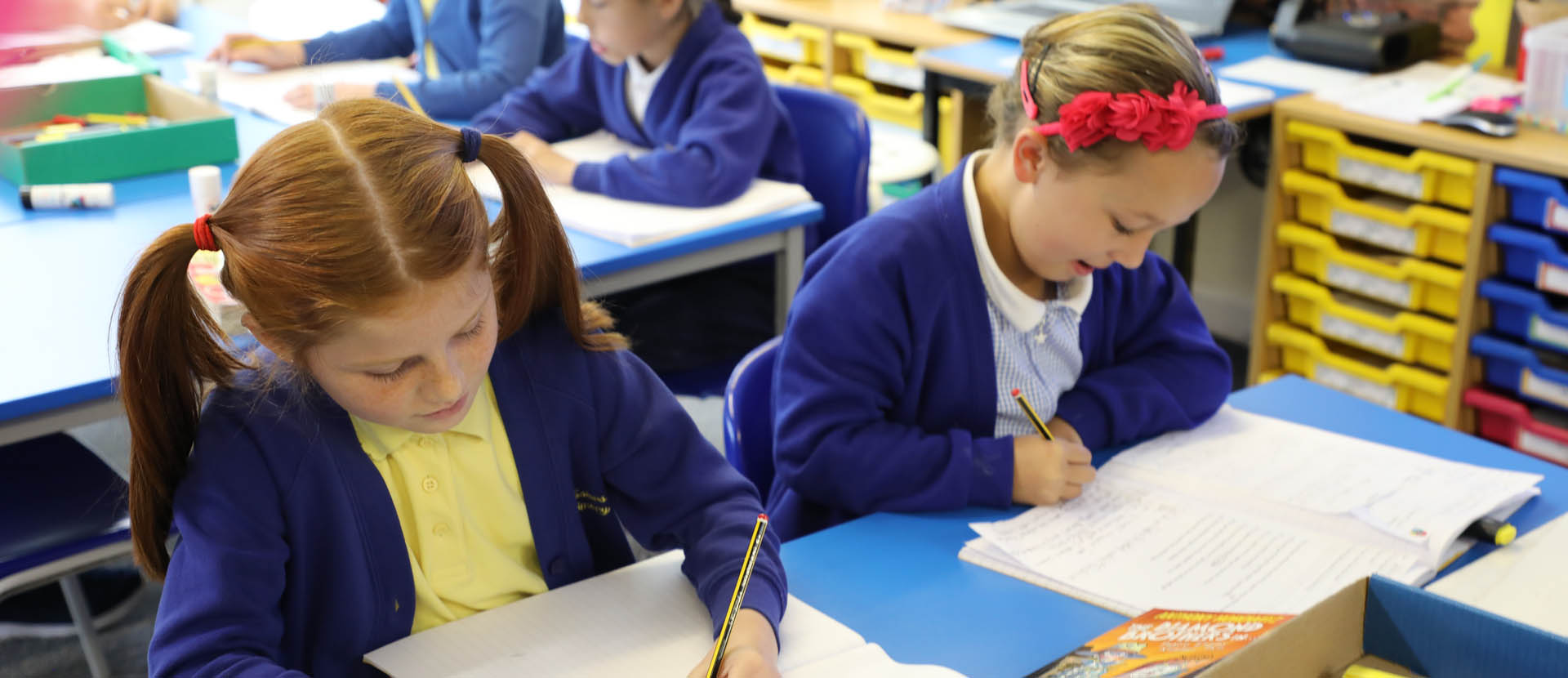
Curriculum
Curriculum Intent
Our Curriculum Intent is planned using the EYFS Framework and Development Matters for Reception Class and the National Curriculum for Y1-Y6 classes. It also incorporates our “Pupil Needs” (see below) designing our curriculum for our school.
The Early Years Curriculum is detailed on its own EYFS curriculum page. There is an EYFS annual theme overview of learning areas, which includes Talk for Writing texts, for each short term. The White Rose Maths programme of work is followed in maths, please see an annual maths overview with themes, progression, resources and assessment.
In the National Curriculum, Key Stage 1 (Year 1 and Year 2) and the Key Stage 2 (Year 3 and Year 4 – lower KS2; Year 5 and Year 6 – upper KS2) are divided into subject areas. The Curriculum Leads have shared the aims, purpose of study and objectives for each subject, on their subject curriculum page.
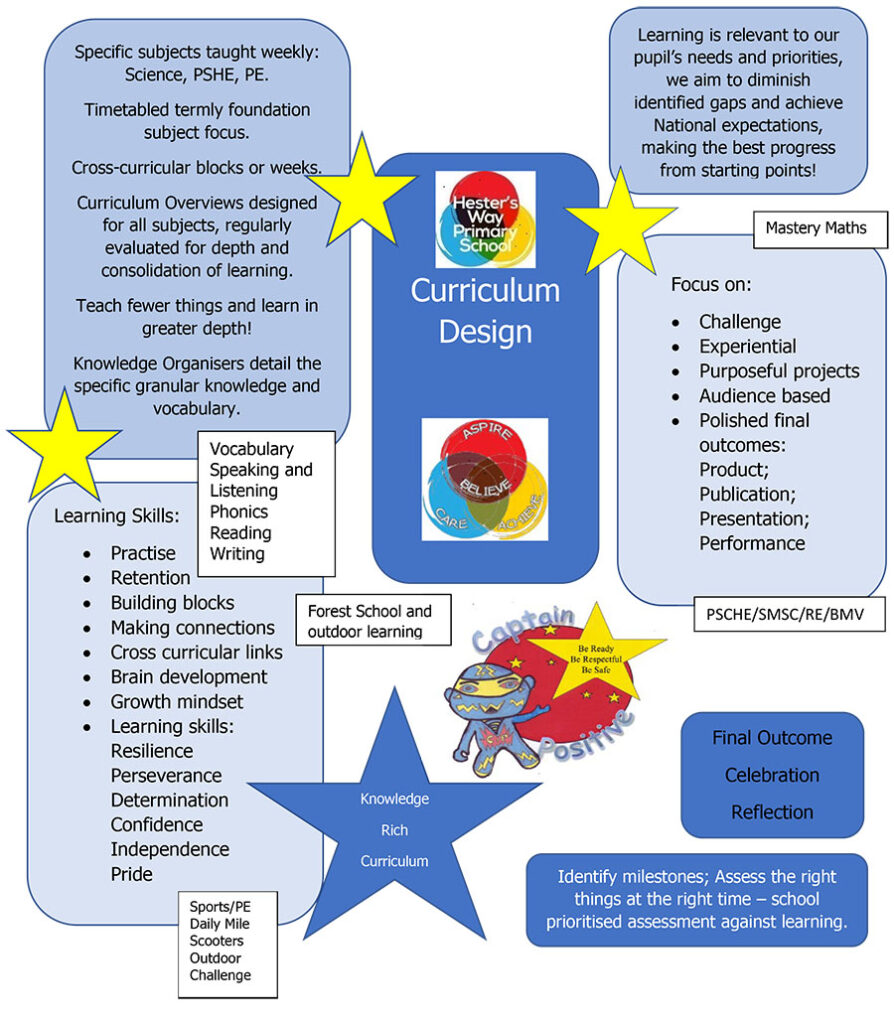
From Y1-Y6, we teach subject specific lessons, so that children can learn and see themselves as “scientists”, “historians”, “geographers”, “artists” etc. We also plan blocks or weeks, where cross curricular links are made with other subjects such as geography, maths and orienteering, or history and English. This enables the links between subjects, knowledge and skills to connect, strengthen, securing and embedding learning.
Terms are timetabled, so that classes can share and use the school resources effectively. Foundation subjects are alternated termly, if they are not taught every week. This enables teachers to teach “fewer things in greater depth”, subjects are allocated the time needed for them to be taught effectively.
Every week, science, physical education and personal, social and health education (PSHE) are taught. Focus weeks have also been planned when children need to have more of an identified need, in this subject area, due to assessment outcomes. For example, there is usually a PSHE focus on return to school, following a long holiday or time away; “Sports Week” linked to the Olympics (current world events) with cross curricular links to Modern Foreign Languages; or “Science Week” to invite visitors and do project-based learning where a length of time is needed.
Curriculum Leads have developed subject annual overviews, mapping out the learning objectives – what is taught and when. Knowledge Organisers (see Knowledge Organiser Guidance), designed by the Curriculum Leads, are used to teach the pupils new knowledge, vocabulary, share links to prior learning and the current learning journey. These are also used by teachers to pre-teach for some children, needing additional support in lessons, as well as assessment tools. The Curriculum Leads have developed and improved this overtime and they are progressive across the year groups.
Scheme and programmes of study are used in some subjects but these are always linked to the EYFS and National Curriculum. We use:
- “Sounds Write” DfE approved phonics scheme.
- “White Rose Maths” across the school for Mastery Maths.
- “REAL PE” and “Jasmine” online for Sports/Physical Education, this is also linked to Health Living and Well-Being.
- “KAPOW Art”, featuring videos and skills examples, with a personalised school overview by the Curriculum Lead.
- “Switched On” computing scheme.
- “Project on a Page” – Design and Technology projects, sometimes linked to business.
- “La Jolie Ronde” French scheme of work in KS2.
- “Music Express” in music lessons.
- “Gloucestershire Religious Education Syllabus” is followed for RE.
- “PSHE Association Programme of Study” for Personal, Social, Health Education.
We provide a “broad and balanced” curriculum, and pupil’s make use of the large field and sports resources, forest school area and other outdoor spaces. We also have a “Nurture Room”, Pastoral Support “Pod”, kitchen, library, IT room and large school hall. Curriculum Leads have also been building up subject specific resources linked to learning.
Implementation
Teachers are qualified and consider themselves to be “life-long” learners, as they continue their career, professional development, enabling them to teach the children according to best practise, through evidence-based research.
Our teaching staff have been trained in the Sounds Write phonics scheme, Reading and Talk for Writing by Pie Corbett, Mastery Maths through the Glow Maths “Transformaths” project group and other training including the GCC Local Authority Curriculum Leader networks. Teachers follow a structured curriculum overview for these subjects, teach through agreed resources, toolkits and environmental support.
Curriculum Leads have developed their own guidelines for Reading, Writing and Maths, which details the implementation stage, to support teachers in the processes and systems they should follow. They also have their own Curriculum pages which detail more about each subject’s delivery stage.
Vocabulary is taught across the curriculum and new learning supported by the use of “Knowledge Organisers”.
Resources, equipment and displays are used to scaffold and support the children’s learning, as we are aware that children learn best through experience, manipulation, imagery and pictorial representation.
Our “Cultural Capital Offer” includes visits and visitors, for the children to be immersed in their learning, have experiences and opportunities to learn in different settings. This supports the experiential, purposeful ad “real life” learning that all pupils need.
Our pupils are encouraged to be “Purple Learners”, communicating how they feel about their learning in the “Comfort”, “Stretch” and “Panic” zones. They are given “Purple Learner Challenges” in English lessons, as an extended next step, when they have completed their differentiated task. In Mastery Maths children are taught the same concept, but they work through the “Do it”, “Twist it” and “Deepen it” – fluency, reasoning and problem solving. The work is not pre-differentiated but differentiated by the child’s attainment for that lesson. This prevents, any preconceived ideas that children have a set ability and are not able to achieve higher in different concept areas, from limiting children’s learning.
Special Educational Needs children are supported through My Plan, My Pan+ and Education, Health, Care Plan targets and interventions. Please see the SEND page for further details.
Our Behaviour Policy support the expectations of “Behaviour for Learning”, everyone has a fresh start every day and children move up to the “Gold” section of the Behaviour Chart, receiving a “Captain Positive” sticker. Teachers are specific in saying why the child has been rewarded for their behaviour, for example ” Well one for your contributing and explaining why you support/challenge your friend’s views/opinions”.
Children have timetabled sessions for practise and retrieval, in order to promote retention of knowledge, for example in “Number Sense” when fluency is practised in maths. Metacognition and positive “Growth Mindset”, bases new learning on prior learning, enables our children build up and make connections in their learning, whilst retaining a positive attitude to learning. This links to our values: Perseverance, Confidence, Resilience, Determination, Pride and Independence.
At Hester’s Way Primary School, we:
- encourage pupils to aspire and aim high.
- believe that everyone deserves the same opportunities to succeed.
- work in a happy, safe and caringlearning environment.
- achieve our aspirational goals and targets.
Our Vision “Aspire, Believe, Care, Achieve” and Values are woven into daily school life, built on positive, nurturing relationships and inclusive teaching and learning. The curriculum is our structured teaching and learning intent, however we also know and appreciate that children develop at their own rates, so assessment and evaluation is used to personalise every child’s needs and differentiate accordingly. We teach and guide them through their educational milestones, ensuring that they progress from their starting points and aiming to meet National expectations.
Impact
The impact of the Curriculum Intent and its Implementation is regularly reviewed and evaluated, with the outcomes informing next steps in subject, class and school developments or improvements. These are measured against non-negotiables and identified success criteria on Raising Achievement Plans (RAP).
Impact Measures include:
- Lesson observations or learning walks
- Planning scrutinies
- Book or pupil’s work scrutinies
- Pupil voice
- Learning environment and resource use
- Relationships
- Data outcomes
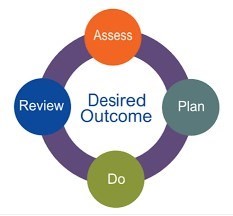
Teachers assess the children’s achievement of meeting the learning objectives and make judgements on our Insight Tracking assessment tool. In Reception Class, Tapestry is used to collate photographs and observations to support teacher judgements in key learning.
Curriculum Leads moderate books against the tracker to ensure accuracy and triangulate their monitoring. Testing also checks accurate teacher judgements. We use:
- Phonics Screening Tests
- Sounds Write phonics diagnostic tests
- Salford reading tests (reading age outcome)
- NFER tests in Grammar, Punctuation and Spelling (GPS); Reading and Maths, every long term
- White Rose Maths assessments are used at the end of a unit of work
- Previous SATs tests for Y2 and Y6
Assessments and outcomes are shared at Pupil Progress Meetings and children are all tracked, to ensure they are making progress. Provision Maps plan interventions, support and additional measures for children to “catch up”, where needed.
